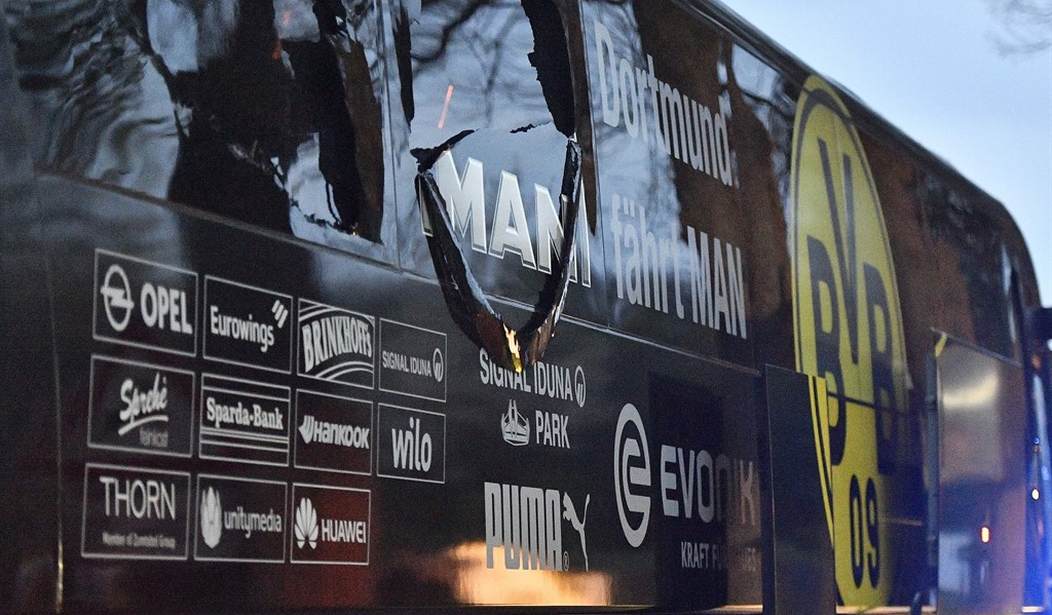We say it pays to wait for all the facts to emerge on breaking news stories, and not to jump to conclusions. The saga of the attack on a German soccer team proves the wisdom of that advice, and the value of skepticism along the way. The attack had all the hallmarks of a radical Islamist terror attack, right down to the purposeful shrapnel and the political statement that accompanied it, and German prosecutors even arrested a known Islamist radical — at first.
Today, however, German police have arrested a man who shorted Borussia Dortmund stock on the morning of the attack, and allege that financial gain was the real motive behind the bombing:
A 28-year-old German-Russian citizen took out a five-figure loan to bet that Borussia Dortmund shares would drop, then bombed the soccer team’s bus in an attack he tried to disguise as Islamic terrorism in a scheme to net millions, German officials said Friday. …
She said the man came to the attention of investigators because he had made “suspicious options purchases” for shares in Borussia Dortmund, the only top-league German club listed on the stock exchange, on the same day as the April 11 attack.
W. had taken out a loan of “several tens of thousands of euros” days before the attack and bought a large number of so-called put options, betting on a drop in Dortmund’s share price, she said.
“A significant share price drop could have been expected if a player had been seriously injured or even killed as a result of the attack,” according to prosecutors, though Koehler said the precise profit W. might have expected was still being calculated.
According to the Associated Press, stock prices did dip after the attack, but rose again quickly afterward. The suspect — identified only as “Sergei W” at the moment — would have had to act quickly to profit off the short, but prosecutors allege he wanted a much bigger payday. Had players been killed or more of them seriously wounded, the stock price would have fallen farther and remained depressed, giving him more opportunity to act quietly. As it turned out, though, only one player was seriously wounded, and the injury is not expected to keep him from missing significant playing time.
Nevertheless, the bombing had its impact on the team’s field play. Midfielder Nuri Sahin told an interviewer that he couldn’t get his mind on their first game after the attack, saying that “there is so much more than football in this world.”
So it was greed rather than religion that was the motivator — not exactly an unknown force in crime, of course, and especially not attempted murder. It’s not as if the initial story didn’t have its holes, either. The first clue was probably the clumsy attempt to shift blame to two very different groups at the same time by leaving letters from both a supposed Islamist terrorist and an imaginary anti-fa radical, which made German investigators suspicious from the start. A real terrorist from either faction wouldn’t have tried to blame the other while claiming credit for an attack. It didn’t take long for investigators to unravel that, either; the AP report says that police had Sergei W under surveillance for a week before the arrest, which would have meant it started the day after the attack.
This makes for a rather memorable lesson in checking assumptions. If German prosecutors have this right, this suspect exploited (very reasonable) fears of terrorism in order to cash in at the expense of athletes, sports fans, and investors. Not all evil springs from radical ideology, a fact to keep in mind when trying to make sense of horrid attacks such as these.








Join the conversation as a VIP Member